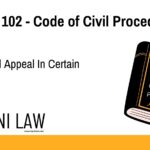Introduction
Driving on Indian roads without valid insurance is not only risky but also illegal. Section 146 of the Motor Vehicles Act, 1988, makes it mandatory for all vehicle owners to have a third-party insurance policy in place before using the vehicle in a public space. This legal requirement ensures that victims of road accidents receive compensation, and vehicle users are financially protected. The provision also imposes strict penalties for non-compliance, reinforcing the importance of insurance in promoting road safety.
Is Insurance Mandatory For Motor Vehicles
Section 146 of the Motor Vehicles Act mandates that no one shall use or allow another person to use a motor vehicle in a public place without a valid third-party insurance policy. This rule applies to all vehicles, including those carrying hazardous goods, which must also hold insurance under the Public Liability Insurance Act, 1991. However, a paid driver will not be held liable for driving an uninsured vehicle unless they know or have reason to believe that the vehicle lacks valid insurance. The rule does not apply to vehicles owned by the Central or State Government used for non-commercial purposes. Additionally, the appropriate government may exempt vehicles owned by specific authorities, such as government entities, local bodies, or State Transport Undertakings, provided a prescribed insurance fund is maintained.
What Is The Penalty for Driving Without Insurance
Driving an uninsured vehicle violates Section 146 and invites strict penalties. For the first offence, the punishment may include imprisonment for up to three months, a fine of ₹2,000, or both. Repeat offenders may face imprisonment for the same duration, a higher fine of ₹4,000, or both. Authorities enforce these penalties to ensure road safety and financial protection for accident victims.
Royal Sundaram Alliance Insurance Co. v. Honnamma (2025)
In this recent decision, the Court held that Section 146 does not require a separate policy for a towed trailer. Though the trailer wasn’t independently insured, the insurer of the towing tractor remained liable. The rationale: negligent driving of the tractor caused the accident, hence the insurer’s duty under Section 146 extends to all third-party harm resulting from the tractor vehicle.
Conclusion
Third-party insurance is not just a legal formality, it is a crucial safety net for road users. Section 146 of the Motor Vehicles Act serves as a reminder that vehicle ownership comes with responsibility. By mandating insurance coverage, the law ensures that both the driver and the public are protected in case of accidents. Complying with this provision not only avoids legal consequences but also contributes to a more secure driving environment for everyone.








